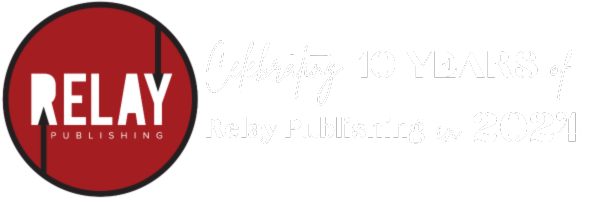If you’ve considered freelance writing to earn extra money, you’d be remiss if you didn’t consider ghostwriting. Put aside any vitriol you may have about the concept of ghostwriting, expand your mind, and be prepared to open your direct-payment app and watch the balance multiply.
Ghostwriting can be found everywhere. From blog posts to white papers to self-help books — the percentage of non-fiction that is ghostwritten has been widely estimated at more than fifty percent and rising each year. Fiction seems to come in at a lower market percentage, given that many would-be authors are loathe to admit that their books are ghostwritten and ghostwriters are often subject to stringent non-disclosure agreements, so the actual portion is unknown. Despite the prevalence of anonymity overall, ghostwriting represents a substantial slice of the publishing pie across all categories and genres and is slated to grow.
Who are the writers responsible for all this content? They are learn-and-earn writers, professional freelancers, and established authors who gravitate to ghostwriting for the benefits offered at each respective stop along their writing journey. No matter your experience or writing level, ghostwriting offers something real and lucrative in an unpredictable and challenging industry.
Learn and Earn Writers
These writers have experienced their first taste of success: requests for full manuscripts from major publishing houses, agent nibbles, contest wins, published articles, a short story accepted into an anthology. Readers who aren’t family and friends respond favorably to your voice and take note of your work. Early successes can be intoxicating and misleading.
For loved ones who don’t understand the fickle, glacially-paced nature of the publishing industry, those first steps of positive traction often come at a steep price. Daily time away from family that, long-term, can seem corrosive. Sacrifices in income level. If only there was a way to prove to those around you that you’re close. Really close.
I remember this crossroads vividly. Beyond the seven prior years of writing experimentation, I had existed inside the realm of the almost-published for three years: an editor going to bat for my novel at a buy meeting for a major New York house, having to fire my first agent because I caught her in lies to industry people, luncheons where I was fangirling and shaking hands with some of the strongest names on the New York Times list, exclusive publisher parties — all at a tremendous personal sacrifice.
On the back deck of a mansion, the last sunrise of a three-day intensive retreat with a select group of writers, blanket wrapped around my shoulders and hands cradling a steamy mug of coffee, my mentor joined me. She wanted to know why I had been pushing myself so hard those retreat days and told me how counter-productive that was to creativity. Through tears, I told her that for ten years, my family had supported my dream, but I didn’t know how much more I could ask of them.
For them, almost-published had lost its luster and promise. Without some kind of return on investment, proof that this life, this dream, was within reach, I would have to return to a 9-to-5 job. After ten years of being almost-published, I realized that if I was going to succeed doing what I loved for a living — writing — I needed to make some changes. That afternoon, I Googled ghostwriting.
My first paid gig was like the exhale on a breath I had been holding for a decade.
Writers who fall into the learn-and-earn category deserve a way to leverage the belief they have in themselves. Money provides that leverage. A publishing credit you can add to a query (vaguely — word count and genre only — because discretion in ghostwriting is paramount) provides that leverage. Employment history as an author with a book packaging company that you can add to your resume and LinkedIn profile provides that leverage.
Imagine a team of experts to help you hone the nuances of craft that still stand in your way as a writer. Imagine earning money that you can then invest back into your writing dreams. Imagine the glacial pace of publication speeding up to fall into step with the pace of your goals.
Candidly, this stage will be the least amount of income you’ll earn as a ghostwriter. You’re still learning the market, reader expectations, and subtleties of your craft. Think of it as a paid internship. You may try out new genres and author voices, an amazing way to solidify your brand when it comes time to refocus your personal writing career, and you’ll develop the discipline and knowledge that will serve you well when you enter your personal publishing space — indie, traditional, or hybrid.

Professional Ghostwriters
Once you are regularly paid to ghostwrite, you evolve into a professional.
No one grows up wanting to be a ghostwriter. Most people are unable to define the term, much less realize the significant contributions ghostwriters make to industries such as business, politics, media/entertainment, activism/charities, and science. Ghostwriting is a robust, well-established part of the publishing industry and a viable way to do what you love for a living with the added benefit of being short-term or intermittent. It’s a bit like strolling the jazz clubs in the French Quarter of New Orleans: you sneak into the side door, stay however long the music suits you, then slip back out again. At eleven years, I’ve stayed longer than most.
Why so long? Ghostwriting fits my introverted nature. I don’t require everyone to know I wrote a book. Straight up, I love to write. I love that my skills have evolved such that I can write nearly anything now — memoir to business to epic fantasy — but also that I have the financial freedom to turn down projects that don’t interest me. And, ah, yes. There is the money.
Ghostwriting is some of the best and most consistent money a freelance writer can make. Although you can negotiate terms to get a percent royalty, I almost always take my payment as a straight fee. Even if you write like Lorraine Moriarty and Lee Child had a love child (sorry, bad joke), there’s no guarantee your client will have the know-how to market the book once it leaves your hands. In 2008, I earned $1000 for my first ghostwritten novel, a 60,000 word-romance; next year, I will earn low six-figures with eighty percent of my income devoted to ghostwriting.
I have not had to advertise my services in five years.
Happy clients are referral-happy clients. Everyone wants to say they have written book, but actual writing is a dying art. The demand for quality ghostwriting is staggering.
Ghostwriting for a book packaging company has helped me to sustain all parts of my freelance business. The amazing team I work with refers clients to me and me to them, depending on each of our respective strengths. My ghostwriting editor is so talented, I’ll be paying her to edit my personal novels prior to another self-publication next year. And when I have industry questions, the CEO of the publishing house is only a Skype question away. How many other freelance writers have that level of accessibility to industry leaders?
Established Writers
Established writers may have worked hard for a decade or more to realize success, but this level of accomplishment comes with its share of financial and creative challenges.
For the traditionally published, house schedules often stretch eighteen months to two years per book. What’s a writer to do between novels? Project gaps can skewer momentum and discipline, as well as impact your wallet. Ghostwriting can supplement increasingly low advances, fund marketing that will be asked of you when your book releases, and act as a creative change of pace from always walking the branding tightrope asked of you by your agent and publisher.
Genre-hopping with ghostwriting can open a world of opportunities to experiment with big-picture items like alternate pacing, world-building, and subplot techniques, as well as ten-thousand other storytelling subtleties that help you grow as a professional. And sometimes, traditional publishing houses in desperate situations will ask you to meet their needs in other ways when they find out you ghostwrite, turning contract-by-contract transactions into a symbiotic and long-term relationship with big industry. Life happens. Contracted authors on deadlines experience untimely events and tragic losses that cripple creativity. The backlash with repeated delays of George R. R. Martin’s Winds of Winter is an example of the decision publishers face when a content-hungry readership does not align with an author’s output. One has only to look to the juggernaut brands of Tom Clancy and James Patterson to realize that ghostwriting is often a legacy publisher’s answer to heavy demand.
For indie writers, the industry lessons you’ll acquire are invaluable. Clients require you to know their genre in order to have the best shot of success in the market. Book packaging companies assemble a top-notch team you can tap into at any time to ask questions. The network of professionals you are exposed to prove a valuable resource for all your indie decisions. With ghostwriting income, you’ll never have to compromise on the quality of your personal books.
Savvy ghostwriting clients and book packagers give you a detailed outline. Their success depends on the ghostwriter understanding reader expectations. Think of it like boarding a bus on a Dallas to Los Angeles run. The stops are scheduled, but what happens when you step off the bus in each of those places? Infinite possibilities. Having a well-plotted outline saves you time, but as all writers know, outlines are only the beginning of a magical journey that happens because of the thousands of unique decisions made during story creation.
Ghostwriting draws in a substantial income for established writers. They are a proven commodity and paid accordingly.
A Final Word of Creative Caution
When I began this subset of freelancing, I didn’t know of any other ghostwriters. I learned everything through trial and error. On some level, I knew it was a dangerous prospect to monetize my passion. A bit Pavlovian, actually: manuscript delivered, breathe in, payment hits your bank, breathe out, off to the next project. Keep in mind that I only took on projects that I liked, whose story world or topic I wanted to spend time inside. When faced with a choice between working on my personal manuscript for free or spending the same time writing for someone else and earning $10,000, the choice was easy.
I developed a thriving freelance business to the exclusion of my personal writing.
I always knew that someday I would return to those old manuscripts a far more advanced writer for all the books I had written. I’m working on re-prioritizing my prime creative years. Ghostwriting has given me so much over the past decade. Soon, the time will come for me to stroll out to the next jazz club and see what music I can find. Until then, I’ll do what makes me happy.
Write.
And watch my balance multiply.
Relay Publishing has several ghostwriting positions currently available and welcomes applications from all writers—please go to the Write For Relay page to find out more.
Harry Wallett is the Founder and Managing Director of Relay Publishing. Combining his entrepreneurial background with a love of great stories, Harry founded Relay in 2013 as a fresh way to create books and for writers to earn a living from their work. Since then, Relay has sold 3+ million copies and worked with 100s of writers on bestselling titles such as Defending Innocence, The Alveria Dragon Akademy Series and Rancher’s Family Christmas.
Harry oversees the creative direction of the company, and works to develop a supportive collaborative environment for the Relay team to thrive within in order to fulfill our mission to create unputdownable books.

